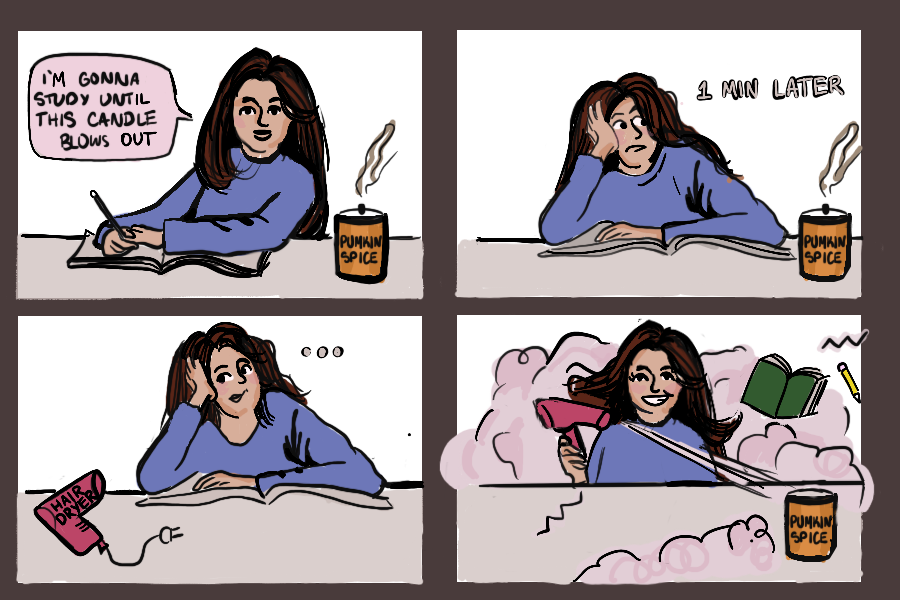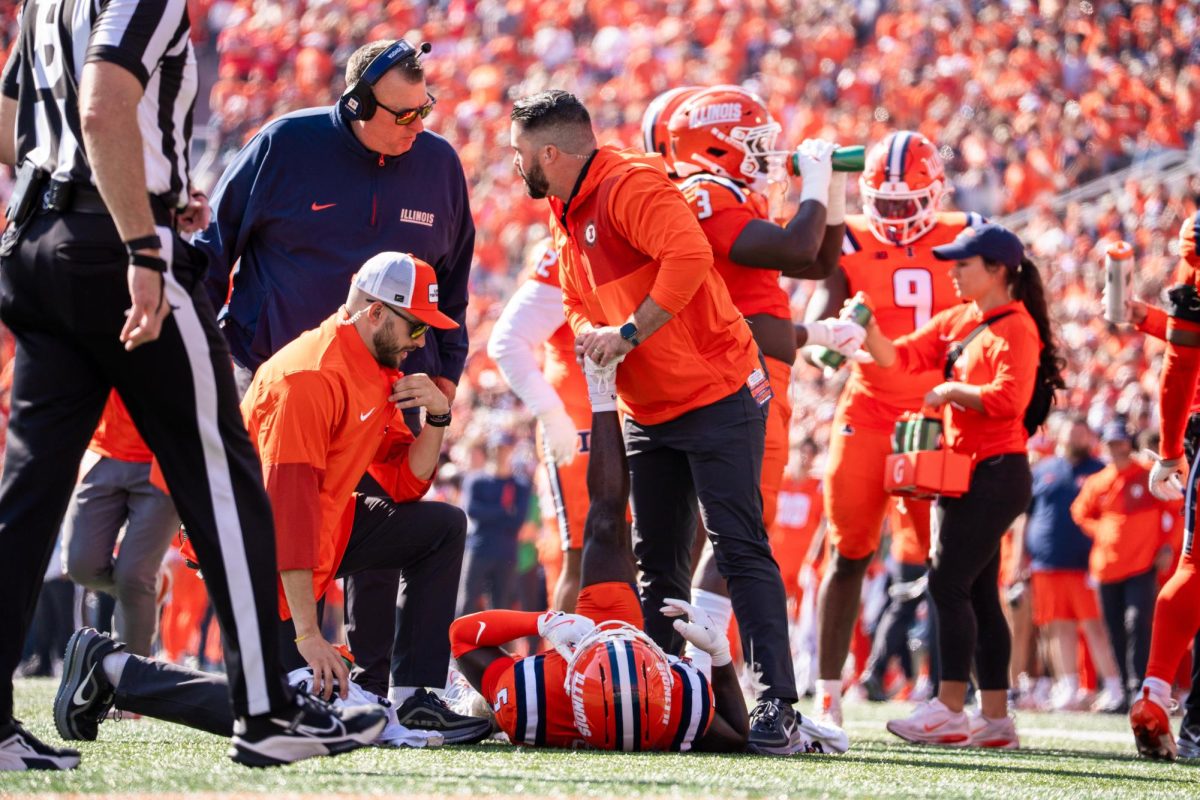The chances of you reading this entire article are slim to none. You’ll receive a text, check your e-mail or divert your attention back to the show you were watching.
The chances of you reading this entire article are slim to none. Oh, and don’t worry, none of these links are real.
You’ll receive a text, check your e-mail or divert your attention back to the show you were watching.
Watching the Jan. 17 episode of The Colbert Report reinforced an idea that was new to me last semester. Stephen Colbert was interviewing Sherry Turkle, a tenured MIT professor of the Social Studies of Science and Technology, about her book “Alone Together: Why We Expect More from Technology and Less from Each Other.” The idea that you can accomplish more if you multitask has become the norm.

Get The Daily Illini in your inbox!
Did that re-grab your attention? Good.
As I watched, I began to formulate some ideas, so I whipped out my trusted laptop to write this piece. My mind wandered as I checked some e-mail, remembered to write a Happy Birthday message to a Facebook friend (Facebook now passes the Microsoft Word spell check), thought about my spring break plans and scanned my iTunes for a good song to accent the mood …
And then I realized how far I had strayed from my original mission.
How can you presume to effectively accomplish anything when there’s all this other stuff in the way? But multitasking and social networking are ways to accomplish more, right?
Because of Nicholas Carr’s eye-opening book “The Shallows: What the Internet Is Doing to Our Brains,” I started to really think about why I think I need technology like the Internet.
I’ve kept in touch with friends abroad, managed my schedule and done time-efficient research for classes.
However, I’ve also lost my attention span, done ‘research’ about people via Facebook and trained my mind to explain my life in 140 characters or less.
An underlying theme in “The Shallows” is the need to make “time to operate the machine and time to sit idly in the garden.”
Carr traces this ability to think deeply for an extended period of time to innovators like Nathaniel Hawthorne, who became an American literary icon.
It’s important to innovate and maximize efficiency, but the Internet’s not doing much to help my personal relationships.

Just making sure you’re still with me!
A recurring sentiment Carr invokes in “The Shallows” is that he was having trouble thinking the way he used to. Until I read the book, I kept all my notes in Google Docs. It was meticulously organized and made it so easy to access information!
In accordance with the book’s points, though, I watched my grades rise last semester as I shifted from online note-taking to old fashioned pen and paper.
I was no longer busying myself with creating links during lecture or researching a topic while my professors explained it.
I closed the laptop and effectively opened my ears and eyes.
It’s so easy to go-go-go, check your fantasy football scores while watching the NFL with friends, or update your Twitter status when you’re about to eat Thanksgiving dinner.
How about taking some time out of your day to get to that book you’ve been meaning to read?
I know full-well that a walk outside (maybe not in this weather) would be a more pensive undertaking than playing another game at Sporcle.com or browsing Stumbleupon.com.
It takes conscious effort to stray from auto-pilot and engage in more thoughtful, meaningful interaction.

Thanks for staying with me. And next time you browse Wikipedia or sit with your link-crazy Kindle reader, remember that it’s more than likely you won’t finish what you set out to do.
“I’m no Luddite,” Turkle argues. “This is not a book about getting rid of [the Internet]; it’s just to put it in its place. You live for your communications with people, not for your communications with technology.”
Alex is a senior in LAS.





